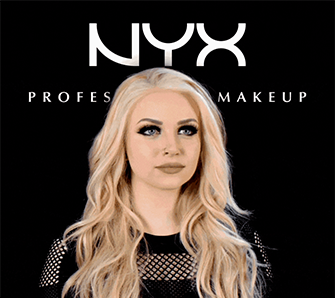
The term ‘brand’ has become increasingly important and is synonymous with high-quality, enhanced user experience and prompt service.
This is why branding has emerged as an extremely powerful marketing strategy that can help elevate the reputation of a business. After all, a successful brand is one that resonates with the masses.
As Intuit’s co-founder Scott Cook put it: “A brand is no longer what we tell consumers it is, it is what consumers tell each other it is.”
This development has led marketers to place emphasis on a brand’s perceived value in the eyes of the consumer, a concept that is also known as “brand equity”.
The Definition Of Brand Equity (And Why It Is So Important)
What Is Brand Equity?
Essentially, brand equity is an abstract, intangible idea that is rooted in the fact that reputable brands are more successful.
The term itself is used to describe a whole set of brand assets and liabilities that are attached to your brand – they can either be positive or negative. At its core, brand equity is the sum of all consumer interactions, experiences, and expectations with your brand.
Positive equity in a brand is the culmination of years of high-quality products and exemplary customer service. With time, your target audience is likely to develop a positive perception of your business.
It is important to note that building your brand’s equity it is not an isolated event. It is the result of several years of exceeding consumer expectations.
What Constitutes Brand Equity?
Brand equity refers to a combination of several dimensions that give the business a foothold in the market.
No business is launched with this, unless it is started by an organization that already has goodwill in the market. Even then, the only brand equity afforded to the new business would be through ‘association’ with the established business.
There are three main dimensions:
Brand Loyalty
The inclusion of brand loyalty is highly debated, as some attribute this as a direct result of positive equity in a brand.
The counter-argument to this claim is that when you try to evaluate a brand, the loyalty of their consumer base is one of the first things you look to gauge. In short, this is what makes a financial case for including brand loyalty as an aspect of equity.
Brand loyalty is crucial in many ways; not only does it reduce marketing and customer acquisition costs, but also allows the business to foster a community of die-hard followers who are the main source of revenue.
Brand Awareness
How recognizable your brand is among your target audience is a good indicator of your brand equity. Generally, those with strong brand equity are very popular with consumers, and are instantly recognizable.
The more visible and popular your brand seems, the more likely people are to try it. Consumers, at large, are not very adventurous when it comes to choosing brands. High brand awareness lends a sense of familiarity that gives them the confidence to pick your product without thinking twice.
Widespread recognition also reassures your existing consumer base, while acting as a motivating factor for potential consumers who rely on your visibility to rationalize their purchase decisions.
Perceived Quality (Brand Associations)
The perceived quality of your brand also influences your target audience, and gives them a reason to buy your superior product.
The quality of your product is a very crucial metric, as it can significantly influence how your brand fares with customers and visitors. For people in the trial stage, where they assess the product, low quality can be a deal-breaker.
Perceived quality is also an important part of brand association; it serves to communicate brand information, positions the product as unique, and reassures the customers.
First impressions last till the very end, and if you manage to woo consumers through your quality, they are likely to buy again. Hence, the unique proposition afforded by perceived brand quality contributes to your brand’s equity.
Why Is Brand Equity Valuable?
Brand equity is not only limited to the Fortune 500; every brand that wants to make it big can only do so though positive equity.
As the competition for consumer retention becomes tougher, brands have to formulate a strategy that enables acquisition and retention – and ultimately drives profitable action.
While it is hard to pin down exactly how much a brand’s equity contributes to their profitability, it is clear that loyalty, product quality, and awareness are an inherent part of most successful brands.
Here are three advantages that strong brand equity offers:
Confidence Of Purchase
Brand equity drives a major share of its worth from an established consumer base, which reflects where the company is positioned in the market.
This sense of familiarity eliminates the element of risk that accompanies buyers whenever they are trying out a new product.
Predefined Expectations
Consumers always interact with the brand with an expectation. Typically, this is a result of word of mouth, marketing efforts, or prior experience. Brand equity allows businesses to take the lead and set expectations.
Let’s take Apple, for example. Consumers expect a premium product, albeit at a high price point. Here, the brand expectation is crystal clear and is set by the brand itself. No consumer enters an Apple store expecting an inexpensive product, and this allows for a consistent user experience.
By setting predefined expectations, brands know exactly the benchmark they have to meet in order to retain consumers. This takes away the guesswork and allows brands more liberty to experiment.
Ubiquitous Presence
Strong brand equity allows you to be an integral part of the consumer decision making process. For any offering, established equity is bound to be present in the minds of the consumers.
Even seemingly mundane items, such as toothpaste, are typically associated with a specific brand. This is the power of strong equity, as it occupies a permanent spot in the decision-making process for a specific niche.
When a consumer wants to buy a product with several options to choose from, strong brand equity is the most influential factor that tilts the conversion in your favor.
Simply put, your brand’s equity can positively influence your financial performance. Once you have developed a positive brand identity across all channels, you will begin to develop loyalty amongst your consumer base – thereby driving profitable action.
As global markets continue to be defined by consumer preferences, the development and maintenance of brand equity should headline every business’ plan.
Looking for more branding insights?
Check out Attraction Marketing: How To Stand Out From the Competition to learn how to further position your brand in the market.
Need more help? Our ninjas live to add value to brands. Contact us today to start brainstorming with experts!

















